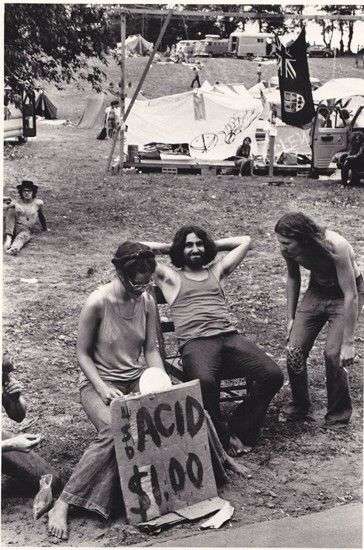The Real Power of Cash Is Its Anonymity
Getting rid of the $100 bill is one more trim on our freedom to be left alone.

Note: Corrected cost of a hit of acid at 5:54 P.M.!
In USA Today, Glenn Reynolds of Instapundit discusses the mad drive by former Treasury Secretary Larry Summers (and many other bright boys) to get rid of large-denomination currency notes.
What is a $100 bill worth now, compared to 1969? According to the U.S. Inflation Calculator online, a $100 bill today has the equivalent purchasing power of $15.49 in 1969 dollars. Likewise, in 1969, a $100 bill had the equivalent purchasing power of $645.55 in today's dollars.
So even if we brought back the discontinued $500 bill, it wouldn't have the purchasing power today that a $100 bill had in 1969, when larger denominations were discontinued. And carrying around a $100 bill today is basically like carrying around a $20 in 1969. As The New York Times put it after Summers' announced his plan, "Getting rid of big bills will make it harder for criminals to do business and make it easier for law enforcement to detect illicit activity. …There is no need for large-denomination currency."
To which Reynolds notes two things. First, inflation!
Reading this got me to thinking: What is a $100 bill worth now, compared to 1969? According to the U.S. Inflation Calculator online, a $100 bill today has the equivalent purchasing power of $15.49 in 1969 dollars. Likewise, in 1969, a $100 bill had the equivalent purchasing power of $645.55 in today's dollars.
So even if we brought back the discontinued $500 bill, it wouldn't have the purchasing power today that a $100 bill had in 1969, when larger denominations were discontinued. And carrying around a $100 bill today is basically like carrying around a $20 in 1969.
Second, anonymity!
Cash has a lot of virtues. One of them is that it allows people to engage in voluntary transactions without the knowledge or permission of anyone else. Governments call this suspicious, but the rest of us call it something else: Freedom.
I'm less taken with the inflation argument, not because inflation doesn't matter but because overall purchasing power proceeds apace, thanks to technological innovation and gains in productivity. When you think of all the great crap that's available to virtually everyone in today's world, I'd much rather be middle class today than upper-middle-class in 1969. Somewhere on this page is a picture of some hippies selling LSD at Woodstock for $1.00 a hit (the brown acid cost less, I'm sure). That would be around $65 today $6.50 today, according to a straight-up inflation calculation. But as numerous folks on Twitter informed me, to the extent that acid is still around, it doesn't cost anywhere near that much and is probably better quality (thanks drug war, for nothing but human misery!).
The anonymity argument strikes me as more meaningful, and not because I'm an international drug dealer or collector of rhino horns or anything like that. The right to do what you want without being tracked and followed or subject to someone else's accounting—that's a pretty good right and it's one worth preserving or at least thinking through fully before getting rid of it. Privacy isn't about hiding bad stuff. It's about, well, privacy. And in many cases, as Reynolds notes, freedom flourishes in private settings and does less well in forced public settings.
Related vid: Is Bitcoin the great libertarian hope or has it been co-opted by Wall Street?
